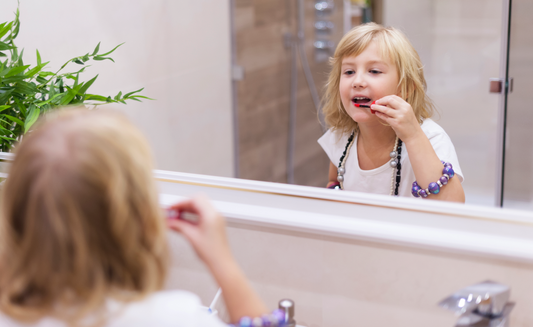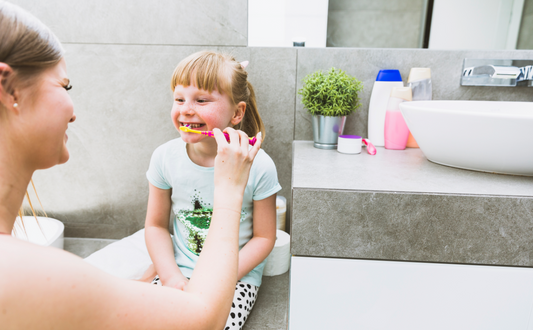Parents and caregivers often face challenges when it comes to teaching proper oral hygiene to children with autism. Sensory sensitivities can make toothbrushing a daunting task, but with the right approach, it can become a positive experience for both child and parent. Here are some helpful tips from our experts:
1. Choose the Right Toothbrush: Opt for a sensory electric toothbrush or a sensory toothbrush designed specifically for toddlers. These brushes feature soft bristles and gentle vibrations to desensitize the mouth and gums, making toothbrushing more comfortable.
2. Select Toothpaste Wisely: Avoid mint-flavored toothpaste, which can be overwhelming for sensitive children. Instead, opt for unflavored or child-friendly flavors like bubblegum or berry. Consider fluoride-free options if your child has difficulty swallowing or is sensitive to foaming toothpaste.
3. Try Alternative Tools: Experiment with different toothbrush varieties, such as mouthguard toothbrushes or u-shaped toothbrushes, to find one that your child finds comfortable and easy to use. Electric toothbrushes may provide additional stimulation for children with sensory sensitivities.
4. Establish a Routine: Help your child learn the steps of toothbrushing by using visual supports, such as laminated posters or calendars. Set a specific time and place for toothbrushing, and consider incorporating a reward system to reinforce positive behavior.
5. Make It Fun: Turn toothbrushing into a game or sing a toothbrushing song to make the experience more enjoyable for your child. Brushing teeth in front of a mirror or during bath time can also help distract and engage your child.
By implementing these strategies, you can help your child with autism develop good oral hygiene habits and overcome sensory challenges associated with toothbrushing. For additional support and guidance, consult with a speech-language pathologist or occupational therapist specializing in early childhood intervention.




